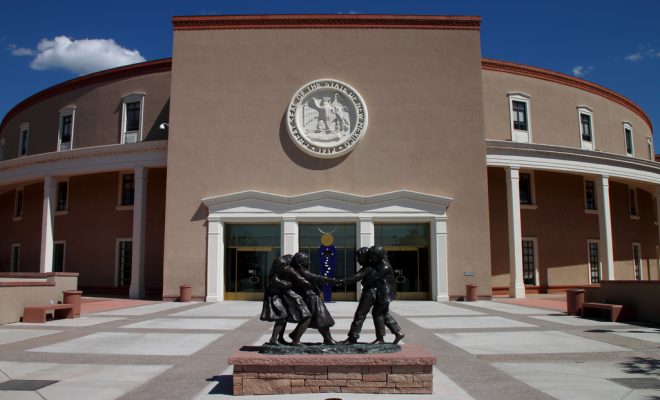 "New Mexico State Capitol" Courtesy of Mr.TinDC; License: (CC BY-ND 2.0)
"New Mexico State Capitol" Courtesy of Mr.TinDC; License: (CC BY-ND 2.0)
Cannabis in America
New Mexico Senate Votes to Expand Medical Marijuana Program
A new law passed by the New Mexico Senate Monday is seeking to expand the state’s existing medical marijuana program to include more qualifying conditions following rising demand.
New Mexico’s medical cannabis program was established in 2007. As the law stands, patients with qualifying conditions–such as HIV/AIDS, Crohn’s disease, Lou Gehrig’s disease, PTSD, arthritis, and more–can obtain a medical marijuana permit from their doctors. If the recently introduced law passes a vote by the House of Representatives, 14 more qualifying conditions would be added to the existing list. This would include patients who suffer from substance abuse disorders.
The bill, which is sponsored by Sen. Cisco McSorley (D-Albuquerque), would also expand the number of marijuana plants that growers are allowed to cultivate once the number of registered patients state-wide reaches 35,000. There are currently roughly 32,000 patients registered with New Mexico’s medical marijuana program; growers are only permitted to grow 450 plants each.
Visitors who are enrolled in other state medical marijuana programs would be able to purchase cannabis in New Mexico as well under the new provisions.
Following last November’s election, 28 states have legalized marijuana in some form. As Law Street previously reported, New Mexico is also in the running to become the next state to legalize recreational marijuana. A few weeks ago, lawmakers in New Mexico’s House and Senate introduced bills to regulate and tax recreational marijuana.
In 2016, three separate pieces of legislation involving recreational marijuana were introduced to the state’s legislature. One was passed by two Senate committees before being narrowly defeated on the Senate floor. But if public opinion is any indication of where a state stands on a certain issue, then recent polls in New Mexico seem to point to a sunny future for marijuana supporters in the state. According to one recent poll, 61 percent of people in New Mexico said they supported full legalization.








Comments